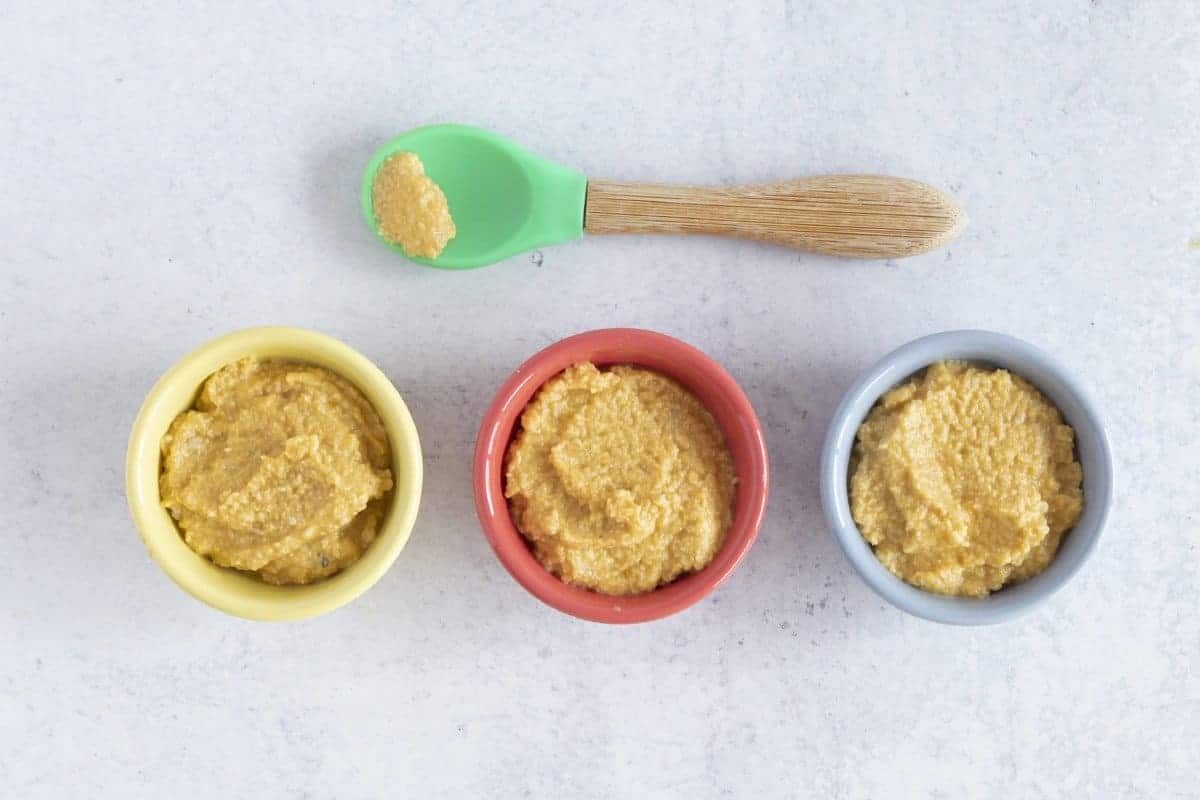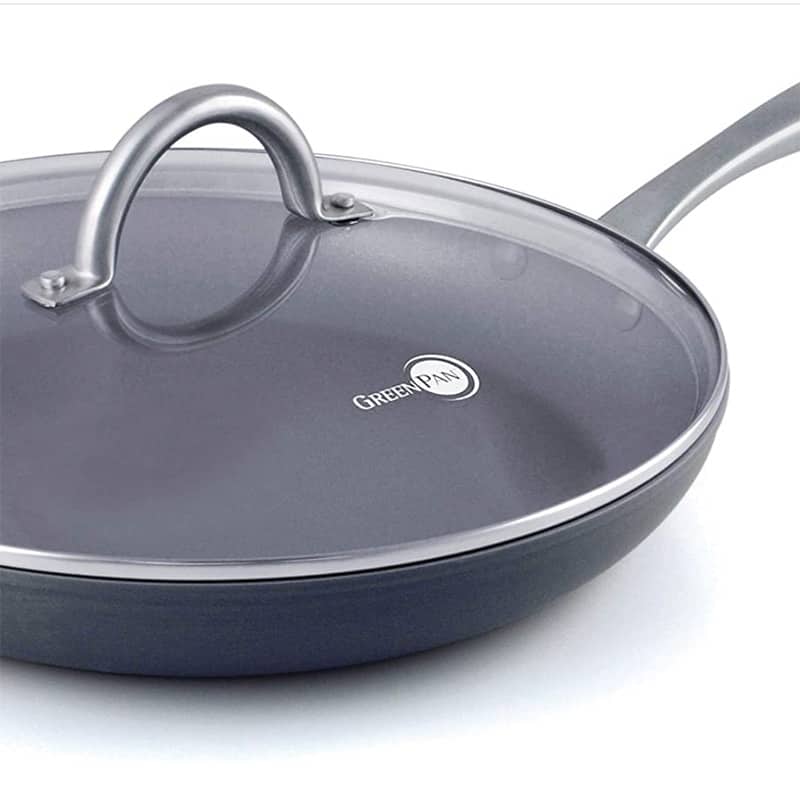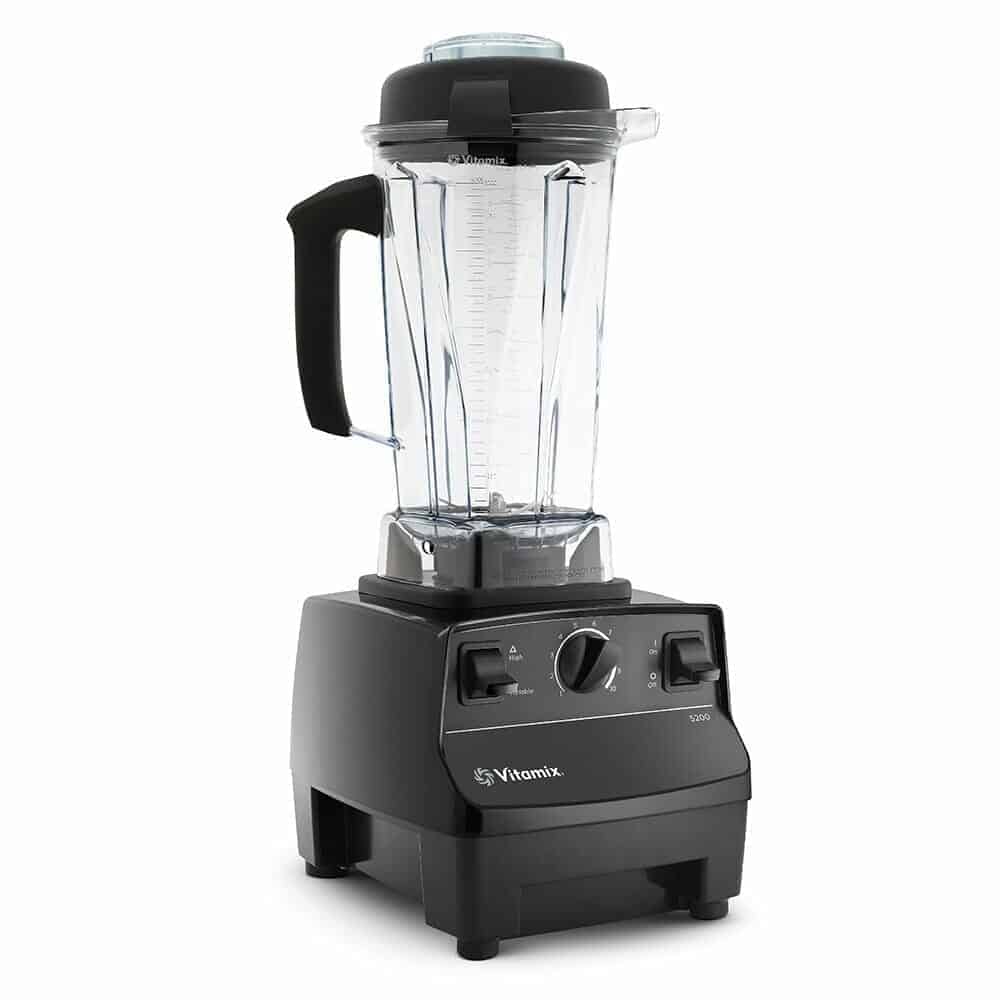Learn how to make iron-rich baby food with this easy recipe for Chicken Puree with three flavor combinations and easy storage tips. This works as a Stage 1, Stage 2, and Stage 3 baby food.
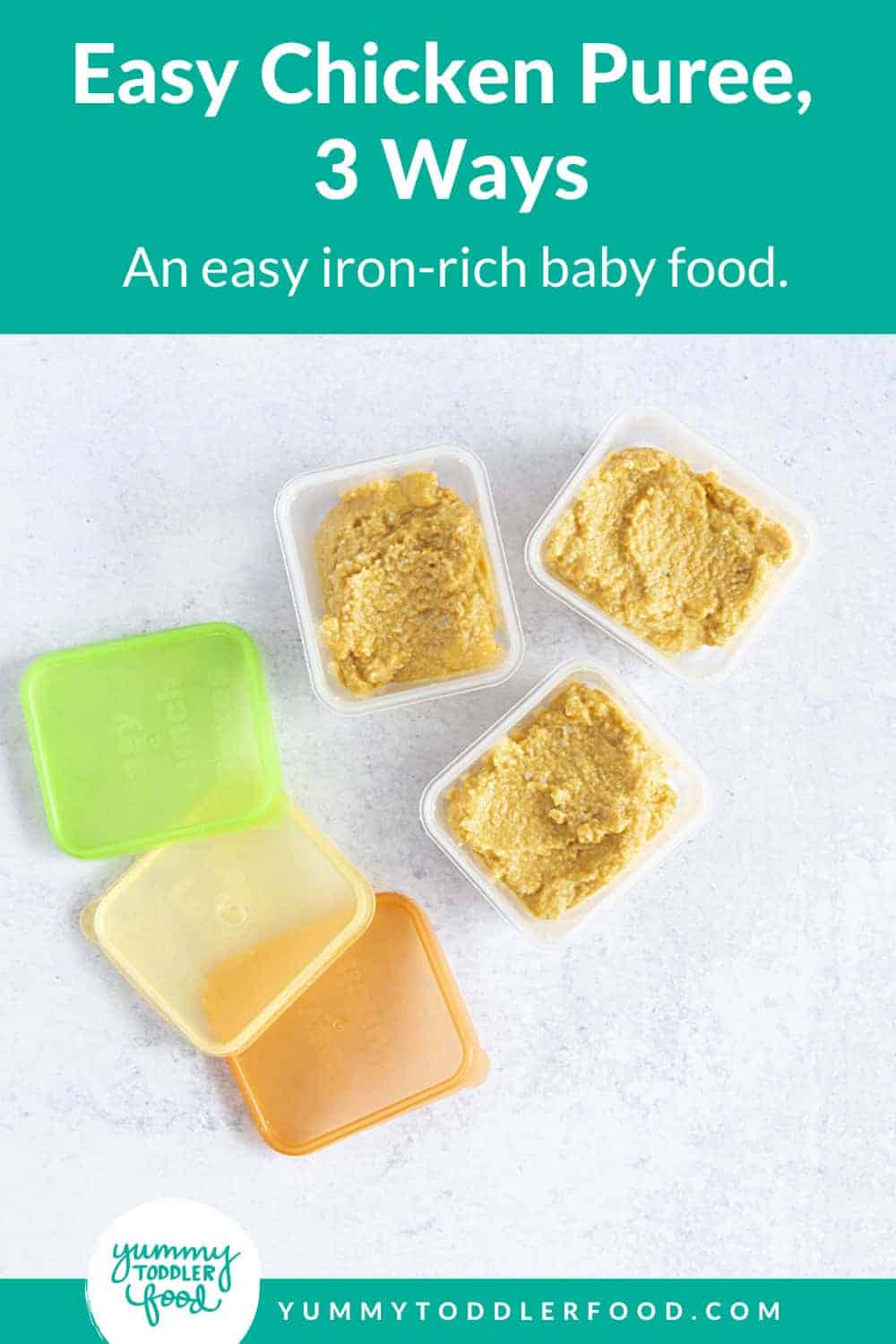
Chicken Puree for Baby
Incorporating iron-rich and protein-packed foods when you start offering baby solids can be a challenge, but this easy puree is a great option to have in the mix. It’s fast to make, stores easily, and can have a variety of flavors according to what you have on hand or prefer.
And you only need a few ingredients to make this baby food, so you don’t need to worry about spending a lot of money on ingredients you won’t be able to use up.
This chicken puree can be made super smooth and offered as a Stage 1 baby food, combined with other purees as a Stage 2 baby food, or pureed less smooth (or not at all) as a Stage 3 baby food.
You can even spread it onto toast or offer it on a preloaded spoon if you’re doing baby-led weaning.

Ingredients You Need
To make this recipe, you’ll need these ingredients:
- Ground chicken: This usually contains a mix of white and dark meat, so it’s a good source of iron.
- Olive oil
- Dried thyme, oregano, or cumin, optional: You can add a spice for more flavor.
- Chicken broth: I use reduced-sodium chicken broth for flavor but less sodium. You can also use salt-free if you prefer.
- Additional baby food puree, optional: Add flavor and nutrients by mixing it with Sweet Potato Puree, Butternut Squash Puree, Avocado Puree, or Carrot Puree.

Step-by-Step Instructions
Here’s a look at how to make this baby food recipe so you know what to expect. Scroll down to the end of this post for the full recipe.
- Warm the olive oil in a skillet and add the chicken. Break up with a spoon.
- Cook until the chicken is cooked through and no longer pink.
- Add the cooked chicken to a blender with the broth and optional additional baby food puree. Add the optional spice if using.
- Blend as smooth as you like, adding more or less liquid as desired.
TIP: You can use water, breastmilk, or formula in place of the chicken broth if you prefer.

Frequently Asked Questions
Yes, it just needs to be prepared in a way that is easy for baby to eat. This puree has all the nutrients in chicken but is low in sodium and is easy to offer as a Stage 1 baby food. And since iron stores in baby start to run out around the 6-month mark, offering iron-rich foods is important.
Yes, it is easy to puree in a blender if you add some liquid to help it easily move around the blade. Cook the chicken first, then puree it to avoid having raw meat in the blender.

Chicken Puree for Baby Led Weaning
You can serve large pieces of chicken using the baby-led weaning, or you can spread some of this puree onto a finger-size piece of toast. This is a good option since it’s so easy for baby to eat.
You can also put some of the puree onto a baby spoon and hand the spoon to baby so they can feed it to themselves. This is a great option for feeding baby, no matter which style of starting solids you’re doing.

How to Store
Let the puree cool, then divide into small storage containers and store in the fridge for up to 5 days. Heat briefly before serving. Or you can freeze in an ice cube tray overnight, transfer the frozen cubes to a freezer bag, and freeze for up to 6 months.
Thaw 1-2 cubes in a small container overnight in the fridge or for about an hour at room temperature.
(Find more on storing baby food.)
Best Tips for Success
- Start with ground chicken for the easiest process of cooking this puree.
- Use reduced-sodium or no-sodium chicken broth. You can also use water, breastmilk, or formula if you prefer.
- Combine the chicken puree with Carrot Puree, Pea Puree, Butternut Squash Puree, Sweet Potato Puree, Broccoli Puree, or even Avocado Puree. Try any other baby food combination you think sounds good.
- Puree very smooth to serve as a Stage 1 baby food.
- Puree less smooth to serve as a Stage 2 and 3 baby food. You can also break up the pieces of cooked chicken, stir with the optional additional baby food, and serve to baby as a finger food.
- You may also like Baked Chicken Meatballs, Instant Pot Butter Chicken, Chicken Noodle Soup for Kids, and Easy Baby Soup.
I’d love to hear your feedback on this recipe if you try it, so please rate and comment below!
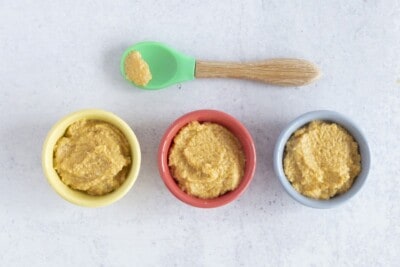
Add the olive oil to a medium pan over medium heat. When warm, add the chicken. Break up with a wooden spoon.
Sprinkle with desired spice, if using, and cook for 8-10 minutes, stirring occasionally and breaking up the meat into small pieces until fully cooked and no longer pink. Turn off the heat and let cool for a few minutes.
Transfer meat to a blender with the broth and sweet potato, if using. Blend well, starting on low and working up to high. Add more broth if needed to make a smooth puree.
Serve, or store in the fridge in ¼-cup portions or in the freezer for future use.
- Store in the fridge in an airtight container for up to 5 days. Freeze the puree in an ice cube tray overnight, then transfer frozen cubes to a storage bag, with as much air removed as possible, and freeze for up to 6 months.
- If you’d like to cook the sweet potato with the chicken, peel and dice 1 small sweet potato finely. Add to the pan with the chicken and cook until soft. Proceed with the recipe.
- Use reduced-sodium or no-sodium chicken broth. You can also use water, breastmilk, or formula if you prefer.
- Combine the chicken puree with Carrot Puree, Pea Puree, Butternut Squash Puree, Sweet Potato Puree, Broccoli Puree, or even Avocado Puree. Or try any other baby food combination you think sounds good.
- Puree very smooth to serve as a Stage 1 baby food.
- Puree less smooth to serve as a Stage 2 and 3 baby food. You can also break up the pieces of cooked chicken, stir with the optional additional baby food, and serve to baby as a finger food.
- To serve this for baby-led weaning, form the raw ground meat into little oval meatballs and cook in the pan for 10-12 minutes, or until cooked through. The shape should be easy for baby to hold and self-feed.
Calories: 128kcal, Carbohydrates: 4g, Protein: 10g, Fat: 8g, Saturated Fat: 2g, Polyunsaturated Fat: 1g, Monounsaturated Fat: 5g, Trans Fat: 1g, Cholesterol: 49mg, Sodium: 98mg, Potassium: 383mg, Fiber: 1g, Sugar: 1g, Vitamin A: 3363IU, Vitamin C: 3mg, Calcium: 11mg, Iron: 1mg
[ad_2]
Source link

